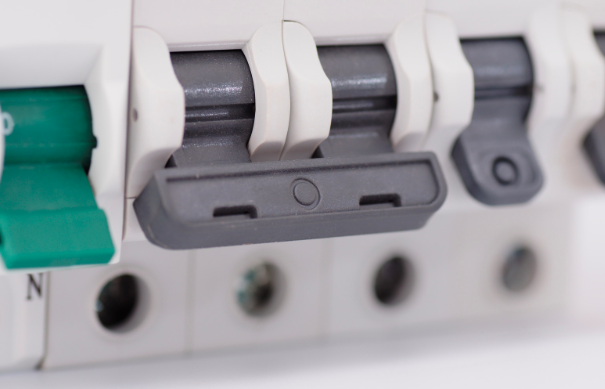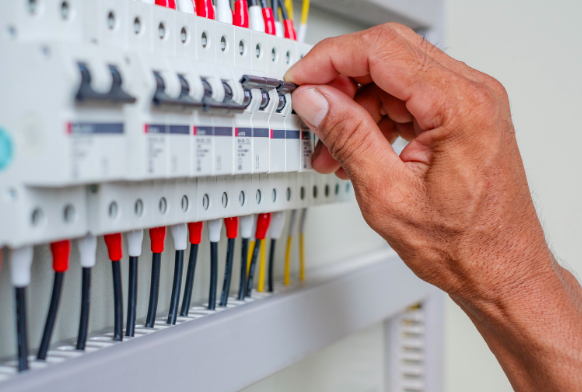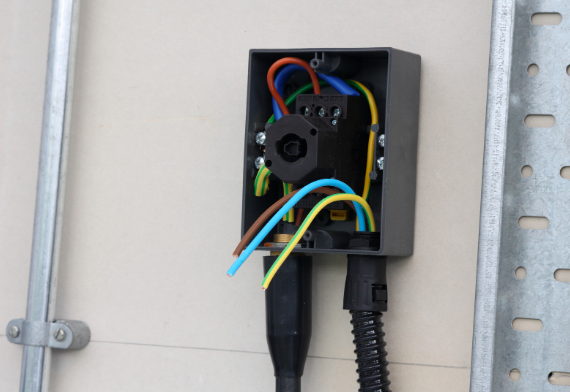Last Updated on November 25, 2022 by mdmtool
There are two main types of electrical switchgear: isolators and circuit breakers. Both are essential in the safe operation of electrical systems, but they work in very different ways. Isolators are used to physically disconnect parts of an electrical system, while circuit breakers are designed to interrupt the flow of electricity in the event of a fault or overload.
What Is A Circuit Breaker?

A circuit breaker is an electrical device that protects an electrical circuit from damage caused by an overload or short circuit. Isolators are typically used as a safety measure to prevent accidental contact with live electrical circuits. They are usually installed at critical points in an electrical system, such as at the main incoming power supply or the junction between different system sections. This allows safe maintenance and repair work to be carried out on one system section without affecting the rest.
What Is An Isolator?

An isolator is an electrical device to isolate an electrical circuit from the rest of the electrical system. Circuit breakers are designed to protect electrical circuits from damage caused by excessive current. They work by automatically interrupting the flow of electricity when they sense a fault or overload condition. This prevents the circuit from being damaged by too much current and protects people from being electrocuted if they come into contact with it.
Difference Between Isolator And Circuit Breaker

- Installation Way: An isolator is usually installed in an electrical panel. A circuit breaker is usually installed between two devices or circuits.
- Use: An isolator is used to isolate a circuit or device from the electrical supply, while a disconnector is used to disconnect a circuit or device from the electrical supply. Isolators are usually installed in an electrical panel while disconnecting.
- Breaking Capacity: An isolator has a low breaking capacity, while a circuit breaker has a high breaking capacity.
- Type of Device: An isolator is a mechanical device, while a circuit breaker is an electrical device.
- Operation Condition: An isolator can be operated in standard and abnormal conditions, while a circuit breaker can be performed only in unstable conditions..
- Operation Method: An isolator is operated manually, while a circuit breaker is operated automatically.
- Different Medium: An isolator is made of insulating material while a circuit breaker is made of conducting material.
- Physical Contact: An isolator does not require physical contact, while a circuit breaker requires physical contact.
- Thermal capability: An isolator has a low thermal ability, while a circuit breaker has a high thermal capacity.
- Trap Charges: An isolator can trap charges, while a circuit breaker cannot trap amounts.
- Number of Poles: An isolator has two or more poles, while a circuit breaker has only one pole.
- Current Flow Operation: Isolators can be operated in normal and abnormal conditions, while circuit breakers can be performed only in irregular shapes.
- Earth Switch: An isolator has an earth switch, while a circuit breaker does not have an earth switch. An earth switch provides a path for the fault current to flow to the ground.

Conclusion
An isolator is used to isolate a circuit or equipment from the mains supply, while a circuit breaker is used to protect the circuit from over currents. Both devices are essential in electrical systems. While an isolator can be used as a switch, it is not designed to carry currents and will not protect the circuit from over currents. On the other hand, a circuit breaker is designed to carry currents and protect the circuit from over-current conditions.





